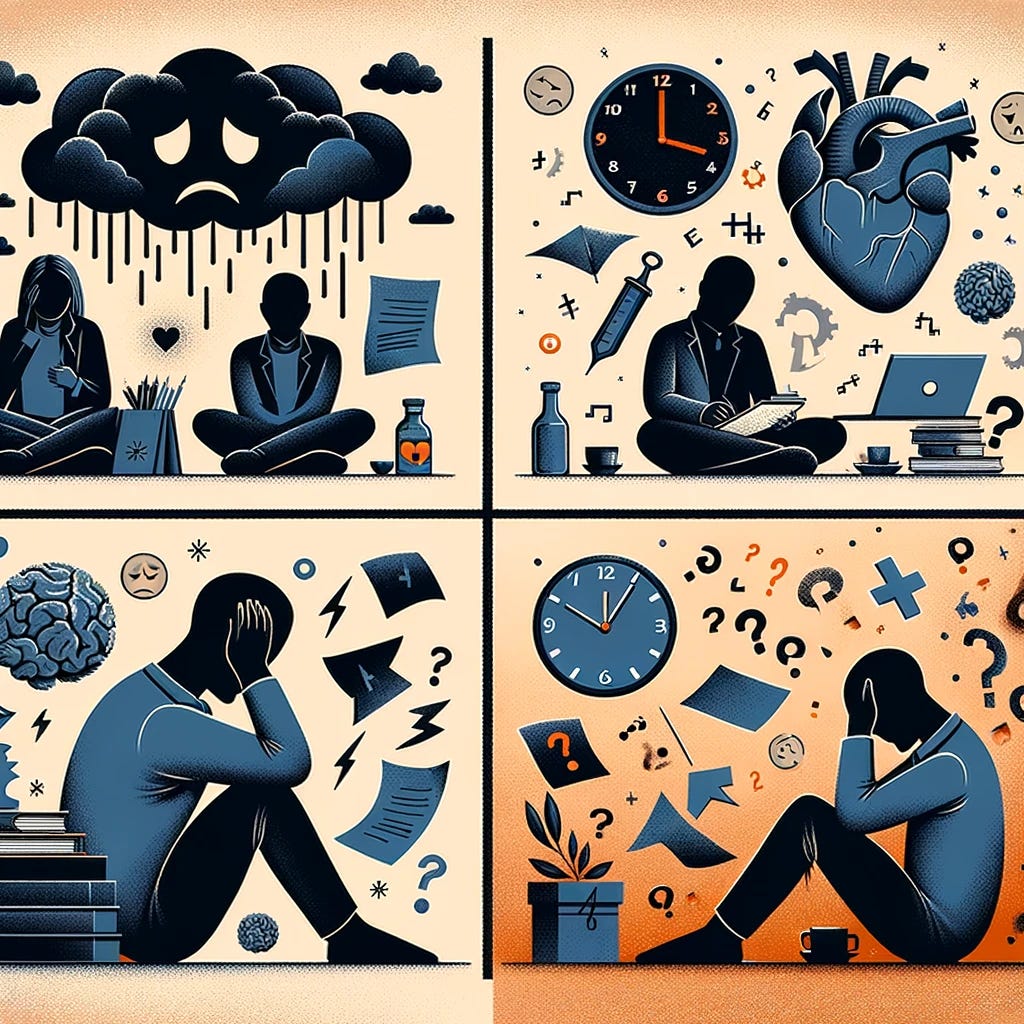For many of us working professionals, one phenomenon that we’re all aware of is burnout. I had a recent phase in November and December of 2023 where I experienced severe burnout, leading to a substantial loss in productivity, mental exhaustion, (temporary) detachment from friends, and whatnot. Even if not all, too many of us have faced it at some point in our careers, and unfortunately, most of us have not learned to catch it in time and take corrective measures in time.
Therefore, in this issue, I’ll discuss what burnout is and how someone can catch and deal with it.
What does “burnout“ mean? 🌡️
The first step to surviving burnout is understanding what it even means. The World Health Organization (WHO) defines it as
Burn-out is a syndrome conceptualized as resulting from chronic workplace stress that has not been successfully managed. It is characterized by three dimensions:
feelings of energy depletion or exhaustion;
increased mental distance from one’s job, or feelings of negativism or cynicism related to one's job; and
reduced professional efficacy.
For example, if you’ve had a sustained phase of overworking at your job to the point where you have been working long hours without taking breaks, constantly feel overwhelmed by your workload, experience physical and emotional exhaustion, struggle to concentrate on tasks, can’t maintain a positive attitude to your work, and despite achieving everything necessary, still feel like you’ve not made progress, you are experiencing a severe case of burnout.
Symptoms of burnout
Burnout presents with various symptoms, some of which are:
Feeling drained and emotionally exhausted: This is often the hallmark of burnout, where individuals feel like they have no more energy to give.
Sense of ineffectiveness and lack of accomplishment: Individuals often feel that no matter what they do, it isn’t enough, or their work doesn't have the impact it used to.
Tiredness and lack of energy: Even after resting or taking a break, you may still feel tired.
Changes in appetite or eating habits: This could include eating more or less than usual.
Sleep disturbances: This might include trouble falling asleep (insomnia) or sleeping too much.
Isolation from others: Pulling away and isolating oneself from coworkers, friends, and family.
Increased mental distance from one’s job: This detachment can make a person feel less interested and less committed to their work.
There could be a number of other symptoms but these happen to be some of the more common ones. However, that’s not where the story ends.
Consequences of burnout
Understanding how burnout presents itself is one side of the coin; the consequence of not managing it is the other. There are several consequences that burnout tends to lead to, such as:
Decreased productivity and efficiency: Burnout can lead to lower work output, more mistakes, and generally poor performance.
Development of physical health issues: Burnout can contribute to problems like headaches, gastrointestinal disorders, muscle tension, fatigue, and significant changes in appetite.
Onset of mental health problems: Burnout is often associated with mental health challenges, including depression, anxiety, and a decreased sense of self-worth.
Emotional exhaustion and detachment: Those experiencing burnout frequently feel emotionally drained, less attached to their pursuits, and find their personal accomplishments less satisfying.
Career dissatisfaction and changes: Persistent burnout can make individuals reconsider their career choices, which may lead to job turnover or a complete career change.
Strained personal and professional relationships: Irritability, lack of patience, and withdrawal can harm relationships with family, friends, and colleagues.
Social isolation: People with burnout may isolate themselves, worsening their emotional state and relationship health.
Truthfully, the effects of these consequences scale over time, and it is vastly better to catch and curb them earlier rather than later.
Dealing with burnout 💭
While the consequences of burnout can be particularly scary, there are various methods for dealing with it.
Some changes you can make on a personal level would include:
Setting a structured routine: Develop a daily routine that you can follow, whether that includes your meals, work, recreational time, or anything else you’d like to add. The structure will create space for you to take a break and rest.
Engaging in activities outside of work: Participate in hobbies and interests that you find fulfilling and enjoyable, which can improve your mood and reduce stress.
Seeking support from friends and family: Sharing your feelings with others can provide emotional relief and strengthen your support network.
Speaking with a mental health professional: They can provide strategies for managing stress better and dealing with the underlying issues contributing to burnout.
Additionally, some professional changes you can make are:
Setting boundaries: Defining clear limits between work and personal life and making changes such as turning off Discord or Slack notifications post-work.
Sharing workload with team: Work with your colleagues and managers to distribute workloads more evenly and ensure everyone's work-life balance is respected.
Making adjustments to workplace: Discuss potential job modifications with your employer, such as flexible work hours or remote work options to help manage stress and workload.
Having a more balanced workstyle: Take regular breaks throughout the day to prevent mental fatigue. Longer breaks or vacations can significantly reduce stress and refresh your perspective.
The road going forward 🛣️
The important change you will need to make is learning to say no. None of the other efforts will sustain if you won’t say no to others for your well-being. At the end of the day, we have to live with ourselves and for ourselves. As long as you can convince yourself to do that, you will be able to maintain a healthy and sustainable lifestyle.






